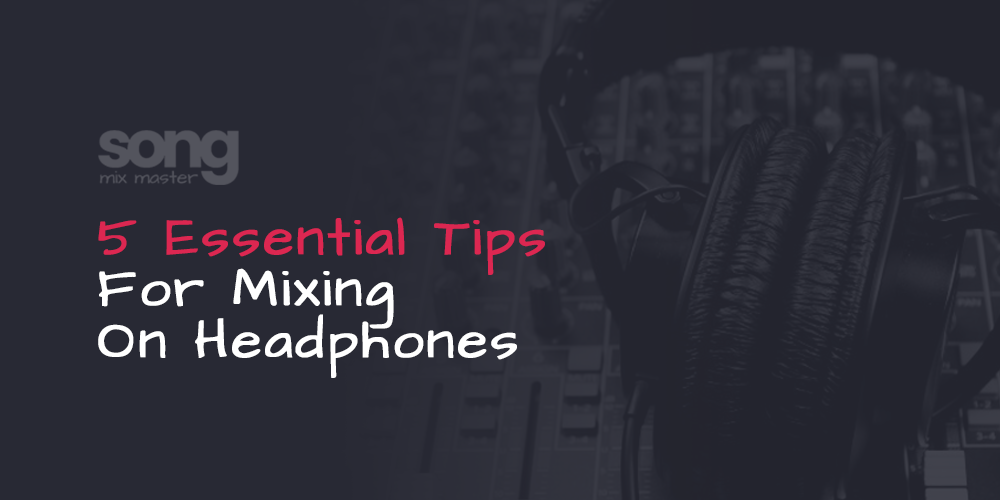Mixing
5 Essential Tips for Mixing on Headphones
Mixing music on headphones can be a great solution for producers who lack the space for large speakers or the perfect room acoustics. Headphones not only offer a portable and cost-effective alternative to traditional studio setups but also provide an intimate sound environment. Here are five essential tips to help you get the most out of mixing on headphones.
1. Choose Professional Studio Headphones
Not all headphones are created equal, especially when it comes to audio mixing. Consumer headphones often enhance certain frequencies to make music sound more appealing for casual listening, which can mislead during mixing sessions. Professional studio headphones, such as the Sennheiser HD 490 PRO, are designed to deliver a more neutral and accurate sound profile, providing you with a truthful representation of your mix.
Also read: 10 Best Headphones for Studio Recording, Mixing, & Mastering
2. Regularly Use Reference Tracks
Headphones can sometimes exaggerate certain aspects of the sound, which might cause you to make adjustments that don’t translate well on other playback systems. To counter this, regularly use reference tracks. These are professionally mixed and mastered songs that you are familiar with, which can help you understand how certain elements should sound on your headphones. By comparing your mix to these tracks, you can achieve a more balanced and professional sound.
3. Opt for Open-Back Headphones
Open-back headphones are generally preferred for mixing because they provide a more accurate and natural sound. Unlike closed-back headphones, which can exaggerate the bass and trap sound reflections, open-back designs allow air and sound to pass freely through the ear cups. This reduces resonance within the headphones and results in a clearer and more expansive soundstage, closely mimicking the experience of listening through studio monitors.
Also read: Tips for Preparing Your Tracks for Mixing and Mastering
4. Embrace the Portability
One of the most significant advantages of using headphones is the ability to mix anywhere. Whether you’re at home, traveling, or even in a noisy environment, headphones provide you with a consistent and isolated listening experience. This mobility allows you to work in various settings without the need for acoustically treated spaces, saving you time and money on room treatments.
5. Prevent Ear Fatigue
Extended mixing sessions on headphones can quickly lead to ear fatigue, which not only affects your hearing but can also impair your judgment when mixing your audio project. To prevent this, keep the volume at moderate levels where you can still hear yourself talk comfortably. Take regular breaks to give your ears a rest, and consider alternating between different pairs of headphones to vary the pressure and frequency response your ears are exposed to.
Conclusion
Mixing on headphones is not just a necessity for some but a preference for many. By selecting the right headphones, using reference tracks, choosing open-back designs, taking advantage of their portability, and being mindful of ear fatigue, you can achieve professional results that translate well across various listening environments. Remember, the goal of mixing is to ensure your music sounds good wherever it’s played, from large sound systems to tiny smartphone speakers.
Aslo read: Mixing Vs. Mastering – Explaining The Main Differences


Disclaimer: Any references to any brands on this website/webpage, including reference to products, trademarks, brands and companies, are provided for description purposes only. We don't have any association with or endorsement by these brands or companies. Some of the links on our blog may be affiliate links. This means if you click on these links and make a purchase, we may earn a commission at no extra cost to you.
Need Professional Mixing & Mastering?
You may also like to read...
Analog vs. Digital Mixing: A Sound Engineer’s Perspective
10 Essential Tips for Mastering with FabFilter Pro-L2
How To Do Parallel Compression in FL Studio
How To Mix And Master My Song – Understanding Song Mastering
How To Use a Pultec EQ For Warm And Punchy Sound
Motion: Dimension – Delay and Reverb Fusion In One Plugin